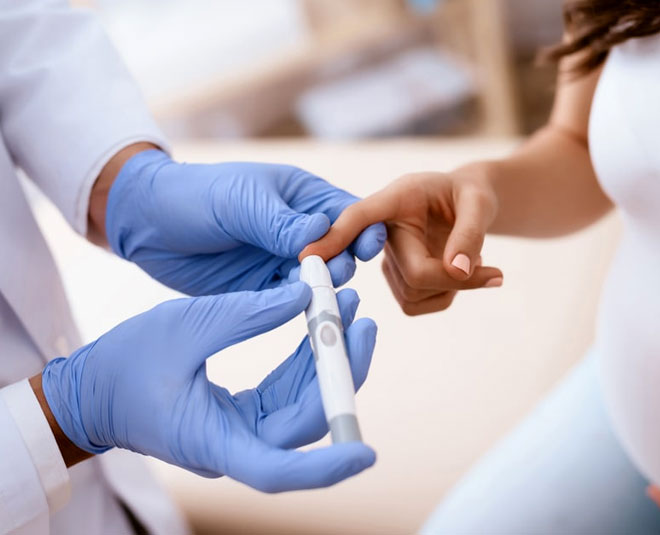
Diabetes has been linked to a reduced ability to conceive and deliver a child effectively. In both men and women, diabetes has been associated to lower fertility and reproductive health. Diabetes can disrupt hormones, causing implantation and/or fertilisation to be delayed or failed. Diabetes has also been linked to DNA damage, as well as sperm and embryo quality concerns. Dr. Aindri Sanyal, Fertility Consultant at Nova IVF Fertility East, Uttam Kumar Sarani, Kolkata tells us the impact of diabetes on fertility. Read on to know more.

Genitourinary infections: Diabetes raises the risk of genitourinary infections and reproductive organ damage, especially to the fallopian tubes.
Pregnancy complications: High blood glucose levels might lead to miscarriage or congenital problems in the baby.
Decreased libido: As a result of weariness, despair, and worry, most diabetic women notice a drop in sexual desire. As a result of decreased vaginal lubrication, women may experience pain and discomfort during intercourse.

Menstrual irregularities and menarche: Type 1 diabetes is associated with a shorter menstrual cycle of less than 31 days, prolonged menstruation of more than 6 days, heavier menstruation, and menstrual problems beginning at a young age.
Anovulation is the lack of ovulation when it would typically occur in a post-menarche, premenopausal woman. Anovulation can be caused by a number of things, including severe mental illness, hormonal imbalances, pituitary or ovarian dysfunction, and diabetes. Diabetic women with a low BMI will have irregular periods, which causes cells to starve intracellular starvation.
This could reduce gonadotropin secretion by impairing hypothalamic pulsatile secretion of gonadotropin-releasing hormone (GnRH). The levels of luteinizing hormone (LH) and prolactin, both vital in reproduction, decrease because of this.
Anti-sperm antibodies: They have the potential to harm sperm and eggs.

Type 2 diabetes is most common in postmenopausal women, although obesity is on the rise because of modern food and lifestyle choices, increasing the risk of Type 2 diabetes throughout the reproductive years.
Obesity is connected to polycystic ovarian syndrome as well as irregular menstrual cycles (PCOS). An overabundance of androgens (male hormones), cysts on the ovaries, and irregular menstrual cycles/lack of ovulation characterise this metabolic condition.
Adiponectin is an anti-obesity hormone that helps in insulin sensitivity. Insulin sensitivity and fat breakdown are caused by lower levels of adiponectin in women with PCOS. As a result, PCOS coexists with diabetes and obesity, posing a triple threat to fertility and reproductive health.
The most effective strategy to address insulin resistance, boost fertility, and prevent Type 2 diabetes and its complications is to lose weight with a good diet and exercise programme.

Controlling blood sugar levels is the first step in improving diabetes. Blood sugar levels can be maintained by eating a diet rich in fruits, vegetables, and whole grains.
A big element of diabetic care is maintaining a healthy weight. 30 minutes of physical activity five days a week can help you lose weight and improve your blood circulation. Because physical activity influences blood sugar levels, additional monitoring will be required before and after exercise.
Don't Miss:What Does Having An Ovarian Cyst Feels Like? Expert Explains
Finding techniques to de-stress will help to keep cortisol levels low, improving the likelihood of conception.
Diabetes is totally manageable, particularly if caught early. Medications and lifestyle factors both have an impact on the effects of diabetes on the body. Blood glucose levels that are either low or too high might cause major problems in daily life. Stroke, glaucoma, hypertension, renal failure, nerve damage, and foot problems are all risks associated with diabetes.
Don't Miss:Here's Why Grabbing Your Fav Gajak, Laddoo & Chikki During Winters Is A Good Idea
Diabetes can make fertility more difficult, although the symptoms are tolerable. Dietary changes, daily exercise, and stress management can all assist to boost the odds of getting pregnant. To understand more about the link between fertility and diabetes, speak with a fertility professional.
For more such stories, stay tuned to HerZindagi!
Also watch this video
Herzindagi video
Our aim is to provide accurate, safe and expert verified information through our articles and social media handles. The remedies, advice and tips mentioned here are for general information only. Please consult your expert before trying any kind of health, beauty, life hacks or astrology related tips. For any feedback or complaint, contact us at compliant_gro@jagrannewmedia.com.